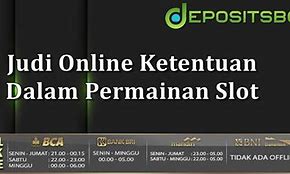
What rights you have over your data
Suggested text: If you have an account on this site, or have left comments, you can request to receive an exported file of the personal data we hold about you, including any data you have provided to us. You can also request that we erase any personal data we hold about you. This does not include any data we are obliged to keep for administrative, legal, or security purposes.
Who we share your data with
Suggested text: If you request a password reset, your IP address will be included in the reset email.
Embedded content from other websites
Suggested text: Articles on this site may include embedded content (e.g. videos, images, articles, etc.). Embedded content from other websites behaves in the exact same way as if the visitor has visited the other website.
These websites may collect data about you, use cookies, embed additional third-party tracking, and monitor your interaction with that embedded content, including tracking your interaction with the embedded content if you have an account and are logged in to that website.
Fingertips Data Intelligence Solutions Policy Statements
This page is to educate you about the details of various policy statements of Fingertips Data Science Solutions Pvt Ltd. It gives the details of terms of conditions through which we provide training/ programs/ courses listed on our website. We expect new enrollers to please read all terms and conditions carefully before enrolling for admission in any program. Log in to our website for enrollment in any program, provide us your consent similarly make you agree to the terms and conditions.
Fingertips Data Science Solutions Pvt Ltd. is a for profit education company registered under the Companies Act, 2013, Ministry of Corporate Affairs, Government of India. The company provides classroom and online training in various courses mentioned in our website. Our website www.fingertips.co.in has all the information of our courses and programs we have under Fingertips Data Science Solutions Pvt Ltd. Our training programs are mainly focused on emerging technologies Data Science, AI, ML, Digital Marketing, Business Intelligence and Corporate Training. These programs are designed such a way to make trainees/learners job ready through interactive and hand-on practical training at classroom as well as online. Our head office is located at Ahmedabad, Gujarat.
The Privacy Policy is applicable to Fingertips Data Intelligence Solution website, training, programmes, course, services, written or verbal communication as well. Fingertips Data Intelligence Solution has a strong mechanism to maintain privacy of its information.
FingerTips reserves the right to access your basic personal details as a part of course registration thus you will be required to share your name, e-mail address, telephone number, address and banking details (will be done through a secured payment gateway) with us.
It can also be used to:
We also post customer testimonials/comments/reviews on our Websites which may contain personal information with prior consent.
We also collect some non-personal information through your search at our website of use of LMS like
Your free access is limited to the extent of recorded videos, course resources, cheat sheets, mock HR rounds
This page is to educate you about the details of various policy statements of Fingertips Data Science Solutions Pvt Ltd. It gives the details of terms of conditions through which we provide training/ programs/ courses listed on our website. We expect new enrollers to please read all terms and conditions carefully before enrolling for admission in any program. Log in to our website for enrollment in any program, provide us your consent similarly make you agree to the terms and conditions.
Fingertips Data Science Solutions Pvt Ltd. is a for profit education company registered under the Companies Act, 2013, Ministry of Corporate Affairs, Government of India. The company provides classroom and online training in various courses mentioned in our website. Our website www.fingertips.co.in has all the information of our courses and programs we have under Fingertips Data Science Solutions Pvt Ltd. Our training programs are mainly focused on emerging technologies Data Science, AI, ML, Digital Marketing, Business Intelligence and Corporate Training. These programs are designed such a way to make trainees/learners job ready through interactive and hand-on practical training at classroom as well as online. Our head office is located at Ahmedabad, Gujarat.
The Privacy Policy is applicable to Fingertips Data Intelligence Solution website, training, programmes, course, services, written or verbal communication as well. Fingertips Data Intelligence Solution has a strong mechanism to maintain privacy of its information.
FingerTips reserves the right to access your basic personal details as a part of course registration thus you will be required to share your name, e-mail address, telephone number, address and banking details (will be done through a secured payment gateway) with us.
It can also be used to:
We also post customer testimonials/comments/reviews on our Websites which may contain personal information with prior consent.
We also collect some non-personal information through your search at our website of use of LMS like
Your free access is limited to the extent of recorded videos, course resources, cheat sheets, mock HR rounds
Where your data is sent
Suggested text: Visitor comments may be checked through an automated spam detection service.
Log hier in om direct te kunnen beginnen met schrijven.
Encyclo is een zoekmachine voor Nederlandstalige begrippen en definities. Op deze pagina:Batig - 5 definities - Encyclo
Het batig slot was de winst die voortkwam uit het cultuurstelsel in Nederlands-Indië en ten goede kwam aan de Nederlandse schatkist. Het cultuurstelsel werd in 1830 door gouverneur-generaal Johannes van den Bosch ingevoerd met het idee dat Nederlands-Indië een wingewest was: Wat toch baat het bezit eener afgelegen kolonie ... indien zij aan de nationale welvaart geene geëvenredigde uitbreiding verschaft?.
Door toenemende bezuinigingen in Indië nam het batig slot gestadig toe. Volgens de grondwet van 1815 gold: de koning heeft bij uitsluiting het opperbestuur over de volkplantingen en bezittingen van het Rijk in andere werelddeelen. Daarmee kon deze besluiten wat er gebeurde met de Indische baten. In de periode 1830-1850 verscheen dan ook slechts een zesde deel daarvan als batig slot op de begroting. Zo betaalde koning Willem I de kosten voor de mobilisatie tijdens zijn volhardingspolitiek na de Belgische afscheiding van 1830 deels van de Indische baten. Vanaf 1840 maakte het batig slot deel uit van de grondwet, maar belangrijker was de grondwet van 1848 waarin de koning niet meer bij uitsluiting het opperbestuur van de koloniën had. Met de Indische comptabiliteitswet van 1864 die in 1867 in werking trad, kreeg het parlement de controle over het batig slot.
Het batig slot maakte uiteindelijk een substantieel deel uit van de totale staatsinkomsten:
Voor 1850 maakte het batig slot gemiddeld 19% uit van de totale inkomsten. In de periode 1851-1860 was dit 31%, van 1861-1870 24% en tussen 1871-1877 13%. Tussen 1856 en 1865 kwam het zelfs zeven maal voor dat het batig slot ongeveer de helft van de staatsinkomsten uitmaakte.
Vanwege de onzekere hoogte van het batig slot werd hiermee aanvankelijk alleen de enorme staatsschuld afgelost. Daarna ging men minder terughoudend om met deze inkomsten en tijdens de economische opleving van de jaren vijftig van de negentiende eeuw begon men met het afschaffen van de accijnzen. Ook de invoering van inkomstenbelasting kon door het batig slot uitgesteld worden. Daarmee werden ook politieke verschuivingen voorkomen in het op censuskiesrecht gebaseerde stelsel. Met de spoorwegwet van 1860 werd het batig slot aangewend om het nationale spoorwegtracé uit te breiden. Ook voor de aanleg van het Noordzeekanaal en de Nieuwe Waterweg werd het batig slot gebruikt.
Aanvankelijk was het cultuurstelsel in Nederland algemeen aanvaard, maar vanaf de jaren veertig van de 19e eeuw kwam er kritiek op onder meer de herendiensten en de gedwongen arbeid. Toen berichten van de in 1845 begonnen hongersnood op Java in 1849 doordrongen in Nederland, bracht dit Kamerlid Van Hoëvell ertoe zijn landgenoten voor te houden in hoeverre zij tekort waren geschoten. Hoewel zijn rapport Slaven en vrijen onder de Nederlandsche wet er mede toe leidde dat in 1859 de slavernij uiteindelijk werd afgeschaft, bleef de batig slot-politiek van kracht. Het belang hiervan was voor de Nederlandse begroting juist in deze periode waarin een mogelijk staatsbankroet voorkomen werd te groot. Hoewel de Tweede Kamer in 1853 protesteerde tegen het gebruik van de term wingewest voor Java, bleef de kritiek in Nederland daardoor aanvankelijk nog beperkt. In Indië was er onder de Europese bevolking al wel een groeiende kritiek te horen.
De kritiek op het cultuurstelsel nam echter toe, ook omdat men meende dat er te weinig ruimte was voor particulier initiatief. Er was wel consensus dat Indië bij moest dragen aan de welvaart van het moederland, maar niet iedereen was meer onverschillig over de manier waarop het batig slot tot stand kwam. In de jaren zestig van de negentiende eeuw werd Indië pas echt een punt van discussie voor de volksvertegenwoordiging. Met de Suikerwet van 1870 werd de geleidelijke terugtrekking van het Nederlands-Indische gouvernement uit de suikercultuur geregeld, terwijl de Agrarische wet van datzelfde jaar het grondbezit van de inlandse bevolking waarborgde, terwijl woeste gronden in erfpacht mochten worden uitgegeven. Hiermee was een einde gekomen aan het cultuurstelsel. Tot 1877 was er nog sprake van een batig slot, maar door dalende koffieprijzen en de dure Atjehoorlog kwam hier een einde aan. Het eerdere argument om het gebruik van het batig slot voor Nederland te rechtvaardigen, namelijk dat van financiële eenheid tussen het moederland en Indië, ging nu niet meer op. De tekorten kwamen geheel op de Indische begroting terecht. Hoewel er na deze tijd geen sprake meer was van een batig slot, bleef deze post tot 1912 wel op de begroting staan. Indirect bleef de handel op Indië van groot belang voor de Nederlandse welvaart.
Aanvankelijk leek de liberalisering gunstig voor de Javanen, maar hun beperkte beschikking over kapitaal om de benodigde investeringen te kunnen doen, zorgde ervoor dat zij niet konden concurreren met de Europeanen. Van Deventer pleitte er in 1899 in het artikel "Een Eereschuld" in De Gids om de sinds de invoering van de Indische comptabiliteitswet in 1867 genoten batige saldo's van bij elkaar 187 miljoen gulden terug te betalen aan Indië. Hoewel dit stuk grote indruk maakte, is het nooit zover gekomen. Door minister Idenburg werd in 1905 wel een Indische schuld van 40 miljoen gulden overgenomen. Rond deze periode begon ook de ethische politiek, waarvan de doelstelling was de koloniale bevolking zodanig te vormen dat zij zou kunnen komen tot politieke en economische zelfstandigheid. Ook hierin bleef echter altijd het eigenbelang een belangrijke rol spelen voor het moederland.
Log hier in om direct te kunnen beginnen met schrijven.
Batig Slot adalah Keuntungan yang diraih oleh pemerintah Kolonial Belanda; surplus anggaran. Sejak tahun 1799 sampai 1903, perbendaharaan Hindia Belanda merupakan bagian dari Negeri Belanda.
Sejak penerapan sistem tanam paksa pada 1831, transfer batig slot (surplus anggaran) berkala dilakukan dari perbendaharaan Hindia ke Belanda.
Referensi: Kamus Sejarah Indonesia.
Suggested text: Our website address is: http://localhost/redox.
Suggested text: When visitors leave comments on the site we collect the data shown in the comments form, and also the visitor’s IP address and browser user agent string to help spam detection.
An anonymized string created from your email address (also called a hash) may be provided to the Gravatar service to see if you are using it. The Gravatar service privacy policy is available here: https://automattic.com/privacy/. After approval of your comment, your profile picture is visible to the public in the context of your comment.
Suggested text: If you upload images to the website, you should avoid uploading images with embedded location data (EXIF GPS) included. Visitors to the website can download and extract any location data from images on the website.
Suggested text: If you leave a comment on our site you may opt-in to saving your name, email address and website in cookies. These are for your convenience so that you do not have to fill in your details again when you leave another comment. These cookies will last for one year.
If you visit our login page, we will set a temporary cookie to determine if your browser accepts cookies. This cookie contains no personal data and is discarded when you close your browser.
When you log in, we will also set up several cookies to save your login information and your screen display choices. Login cookies last for two days, and screen options cookies last for a year. If you select “Remember Me”, your login will persist for two weeks. If you log out of your account, the login cookies will be removed.
If you edit or publish an article, an additional cookie will be saved in your browser. This cookie includes no personal data and simply indicates the post ID of the article you just edited. It expires after 1 day.
How long we retain your data
Suggested text: If you leave a comment, the comment and its metadata are retained indefinitely. This is so we can recognize and approve any follow-up comments automatically instead of holding them in a moderation queue.
For users that register on our website (if any), we also store the personal information they provide in their user profile. All users can see, edit, or delete their personal information at any time (except they cannot change their username). Website administrators can also see and edit that information.



